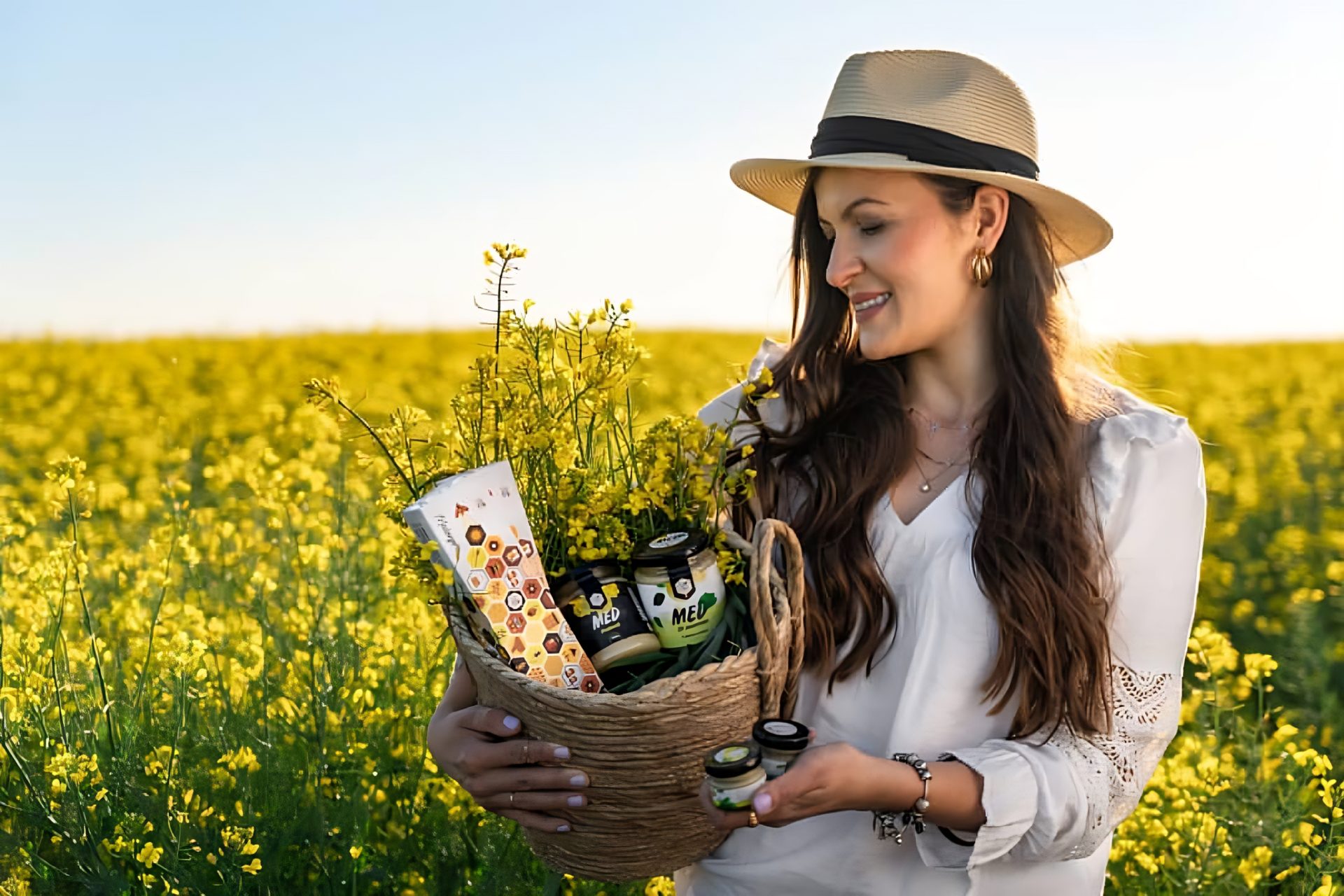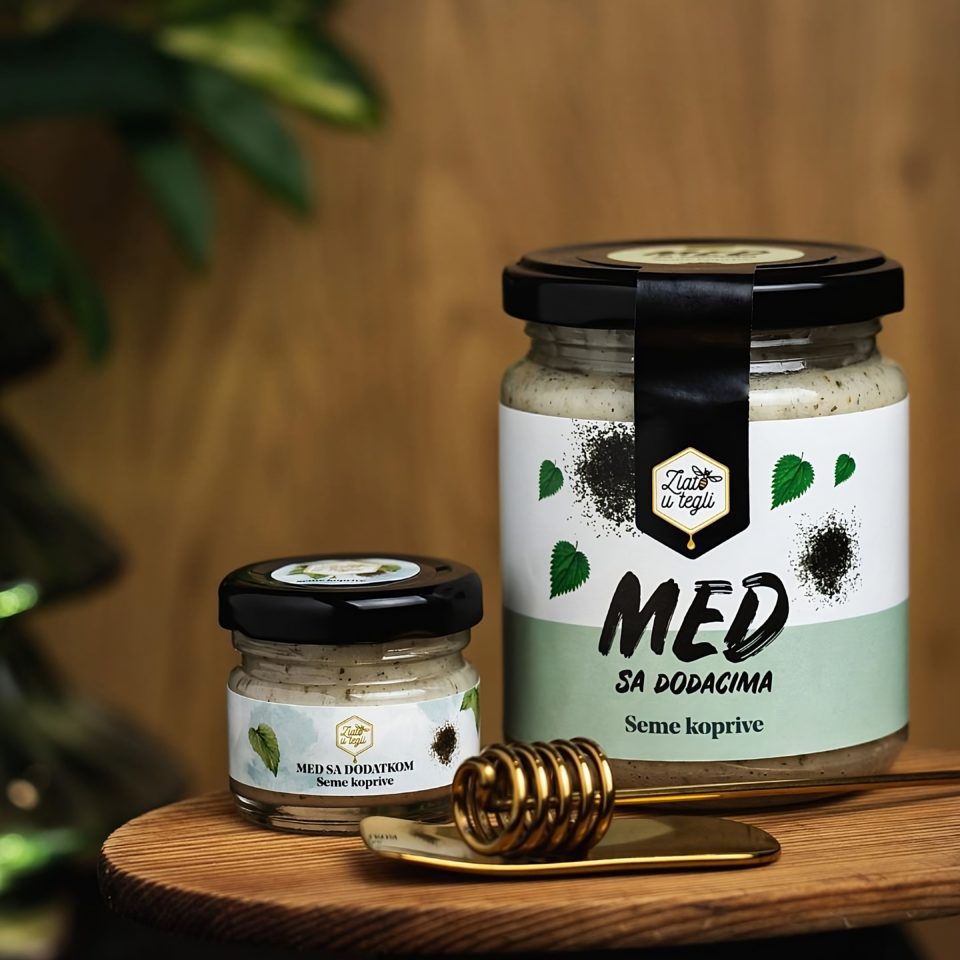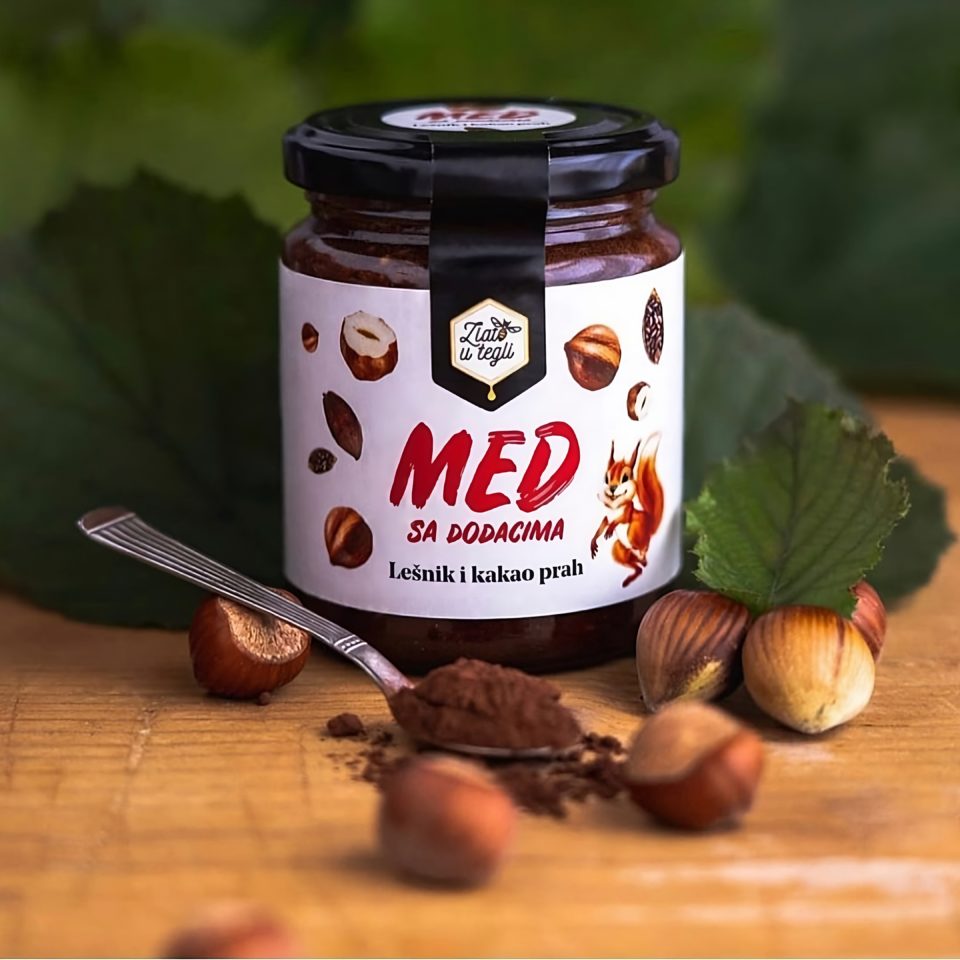
As beekeeping becomes increasingly popular more and more beekeepers are immigrating and crossing the borders of Bosnia and Herzegovina (BiH) in order to improve their honey products as well as increase their earnings.
This raises the question of whether it is possible to live solely off of income from the sale of bee products. A young married couple from Nova Pazova in Serbia are showing that it is possible, as they explain that beekeeping has become their main occupation.
Miroslav Mutić is a pharmacist, and his wife Jelena is an economist. Both are university educated, and they never imagined that they would take up beekeeping. After ten years as beekeepers, however, they are very satisfied with what they have achieved.
Jelena and Miroslav attribute their success not to themselves but to their bees. According to them, the bees’ remarkable energy motivates them to collect the finest honey, which they market under the brand name ‘Gold in a Jar.’ After four years of work, Jelena and Miroslav are satisfied with the income they have earned from the production and sale of honey.

There are many people in Bosnia and Herzegovina and across the region who, like them, also rely on beekeeping as a s source of primary or additional income. Beekeepers often join associations, such as those in the Federation of BiH (FBiH), Republika Srpska (RS), Serbia, and elsewhere. There are estimated to be about 350,000 beehives in the FBiH territory, which is a considerable amount, and around 3,500 beekeepers in the RS. In 2014, 18 beekeeping associations from Serbia, Croatia, and BiH signed an agreement in Brčko intended to improve cooperation and facilitate the exchange of experience and knowledge in the field.
Additionally, regular fairs provide a great opportunity for beekeepers in BiH and across the reason to get together and share their experience. Miroslav and Jelena also participate in the fairs that are held in Belgrade.
The couple’s products can be purchased online, but they also encourage visitors. “We’re just a 15-minute drive from the capital [Belgrade], so we would like to use this opportunity to invite all honey lovers to stop by our place,” says Jelena.
Jelena reveals that their first honey creation, which includes cocoa powder, remains a favorite among customers. Besides this, they also offer various honey-based concoctions, such as honey with royal jelly, pollen and propolis, and propolis mixed with crystallized acacia honey. She adds that their line of products for children is also in high demand.

“We believe that our honey is great for all ages, from one to one hundred, as well as for all occasions. That’s why we decided to design honey gift boxes and honey jars, which are the perfect gift for all kinds of celebrations,” Jelena explains.
She says that the secret of their honey delicacies is dedication, as well as a love of nature and a healthy lifestyle. Not being too curious is also believed to be a characteristic of good beekeepers, because bees do not like to be disturbed and their hives should be opened only when necessary.
“Just as top-quality results are achieved through hard work and dedication, in our years spending time with bees, we realized that timely and moderate interaction between humans and bees is important for a strong and healthy apiary,” Jelena concludes.
This article is part of a series of texts within the #EmployMe project of the Post-Conflict Research Center and Balkan Diskurs. The series aims to raise awareness about the problems that young people face in the field of education and employment in BiH and highlight some good practices in battling these obstacles. This series is part of the “Youth Retention Program in BiH – Opšta Mobilizacija,” implemented by the Nešto Više Association and PRONI Center for Youth Development, with support from the Delegation of the European Union to BiH.






